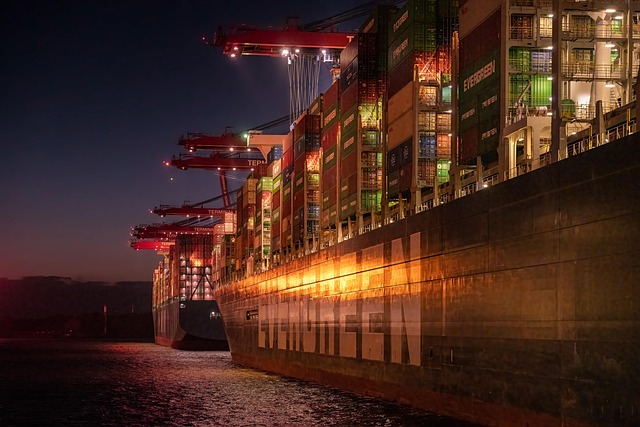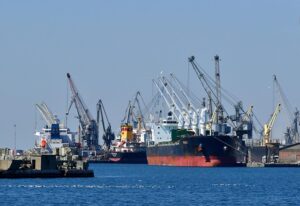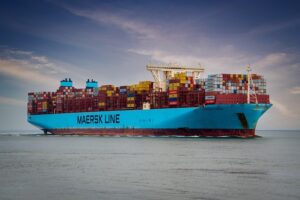The logistics industry has been revolutionized by modular shipping containers, especially ISO containers, offering unparalleled versatility and efficiency compared to traditional intermodal or sea containers. With various sizes and capacities catering to diverse cargo needs, these containers are standardized for seamless integration across road, rail, and sea transportation. Their popularity stems from cost-effectiveness, durability, a wide range of accessories, and modifications available, serving industries like manufacturing and retail. Businesses can easily source these units through rental or leasing services, streamlining operations and reducing costs. In today's dynamic business landscape, shipping containers are transforming supply chain logistics with advanced engineering and precise manufacturing, offering efficient storage and transport solutions for diverse needs.
The logistics industry is experiencing a paradigm shift thanks to modular shipping containers, offering unprecedented flexibility in handling diverse cargo needs. This innovative approach to transport enables easy assembly and reconfiguration, transforming traditional container solutions into multi-purpose assets.
In this article, we explore the rise of these cutting-edge modular systems, uncover their key advantages, and delve into real-world applications across various sectors, showcasing how they’re revolutionizing global trade and supply chains. Discover how shipping containers are evolving to meet the demands of modern logistics.
- The Rise of Modular Shipping Containers: A Revolution in Logistics
- Key Features and Benefits of Using Modular Container Systems
- Real-World Applications: Transforming Industries with Reconfigurable Ships
The Rise of Modular Shipping Containers: A Revolution in Logistics

The logistics industry has witnessed a significant transformation with the advent of modular shipping containers, marking a new era in global trade and transportation. This innovative approach to cargo handling offers unparalleled versatility and efficiency compared to traditional intermodal shipping containers or sea shipping containers. The ability to quickly assemble, reconfigure, and transport these modules is revolutionizing supply chain management.
Modular shipping containers, also known as ISO shipping containers, come in various sizes and capacities, catering to diverse cargo needs. They are designed with a focus on standardization, ensuring seamless integration into different transportation modes, be it road, rail, or sea. The popularity of these containers has grown exponentially due to their cost-effectiveness, durability, and the extensive range of accessories and modifications available. From storage shipping containers to specialized cargo shipping containers, they offer scalable solutions for various industries, including manufacturing, retail, and even as temporary depots. With a reliable shipping container supplier or manufacturer at hand, businesses can easily source these units, either through rental or leasing services, and adapt them to their specific logistical requirements, thereby streamlining operations and reducing costs across the board in the shipping container industry.
Key Features and Benefits of Using Modular Container Systems

Modular shipping containers offer a plethora of benefits that revolutionize the logistics and supply chain industries. One of their key features is the ability to easily assemble and reconfigure them, making them incredibly versatile. This modular design allows for swift setup and disassembly, enabling efficient utilization in various settings—from temporary event spaces to emergency shelters or even as pop-up retail stores. The interconnected nature of these containers fosters seamless intermodal shipping, where they can be easily transferred between different modes of transport, such as sea, rail, and road.
Additionally, ISO shipping containers ensure standardization, providing consistent dimensions and capacity across the board. This uniformity streamlines loading, unloading, and storage processes at shipping container depots and ports. The robust construction of these cargo shipping containers guarantees their longevity, making them a sustainable choice for both short-term and long-term storage shipping container needs. With numerous accessories and modifications available, businesses can tailor these containers to suit their unique requirements, enhancing the overall flexibility and efficiency of their shipping container logistics.
Real-World Applications: Transforming Industries with Reconfigurable Ships

In today’s dynamic business landscape, industries are constantly seeking innovative solutions to streamline operations and adapt to evolving market demands. Modular shipping containers have emerged as a game-changer in this regard, offering unparalleled flexibility and versatility in various sectors. These intermodal shipping containers, often referred to as ISO shipping containers, are designed with advanced engineering and precision manufacturing techniques, ensuring they meet strict international standards. Their robust construction and standardized dimensions make them compatible across different modes of transport, be it sea shipping containers, cargo shipping containers, or even rail and road transport.
The real-world applications of reconfigurable shipping containers are vast. They have revolutionized the way businesses manage their supply chain logistics, offering efficient storage shipping container solutions and seamless shipping container transport services. From acting as temporary structures for event management and emergency shelters to providing creative shipping container depot spaces, these containers are transforming the shipping container industry trends. Many companies now opt for shipping container rental or leasing options to meet short-term needs or experiment with new business models. Shipping container modifications are also common, enabling businesses to customize them for specific purposes, enhancing their functionality and efficiency in the process.
Modular shipping containers are transforming logistics by offering unparalleled flexibility and efficiency. Their unique design, featuring easy assembly and reconfiguration, allows for dynamic adaptation to diverse industry needs. As demonstrated in real-world applications, these containers revolutionize supply chain management, reducing costs and streamlining operations. By embracing this innovative technology, businesses can stay agile and competitive in today’s fast-paced global market.













